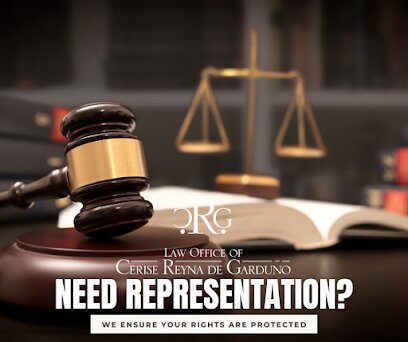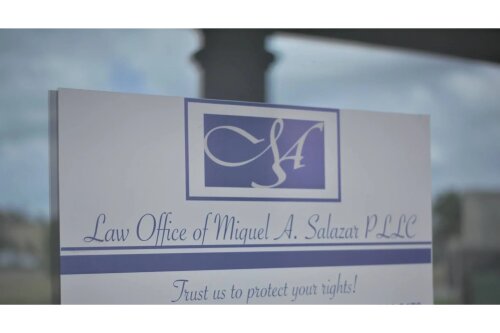Best Toxic Mold Lawyers in Brownsville
Share your needs with us, get contacted by law firms.
Free. Takes 2 min.
List of the best lawyers in Brownsville, United States
About Toxic Mold Law in Brownsville, United States
Brownsville sits in a warm, humid coastal region where mold growth is a common problem after heavy rain, flooding, or in buildings with persistent moisture. "Toxic mold" is a non-legal term people use for certain mold species that produce mycotoxins or are associated with serious indoor air quality problems. The law that governs mold-related disputes in Brownsville is shaped by federal guidance, Texas state law, and local building and health codes rather than a single statewide "toxic mold" statute. Common legal issues include landlord-tenant disputes, insurance coverage fights, contractor and remediation disputes, real-estate disclosure problems, and personal injury or property-damage claims where health or damage is alleged to be caused by mold exposure.
Why You May Need a Lawyer
People often need a lawyer for toxic mold matters when the situation involves contested responsibility, significant health impacts, or substantial financial loss. Typical scenarios include:
- Landlord refuses to repair moisture sources or remove mold in a rental, and the tenant is sick or property is damaged.
- Homeowner insurance denies a mold-related claim or limits coverage and the cost of remediation or repairs is high.
- A mold remediation contractor performs poor work, misrepresents the scope of work, or causes additional damage.
- Mold was discovered after a home purchase and the seller or real estate agent failed to disclose known water damage or mold problems.
- Individuals or families suffer health effects they believe are caused by mold and seek compensation for medical bills, lost wages, or pain and suffering.
In these circumstances, a lawyer can assess liability, preserve evidence, negotiate with insurers or other parties, represent you in administrative complaints or court, and advise on timelines and damages you may recover.
Local Laws Overview
Key legal principles and local considerations that affect mold disputes in Brownsville include:
- Landlord-tenant rules: Texas law provides landlord and tenant rights and remedies. Landlords must address conditions that materially affect health or safety once properly notified by the tenant. Tenants have certain remedies if landlords do not act, but steps and timelines for those remedies must generally be followed.
- Property disclosure: In Texas real estate transactions, sellers must complete required disclosure forms to report known defects, including water intrusion and damage. Failure to disclose material problems can lead to claims after closing.
- Insurance law: Homeowner and commercial policies often limit or exclude mold coverage, or place sublimits and requirements for timely notice and mitigation. The Texas Department of Insurance regulates insurers and can be a resource for consumer complaints.
- Consumer protection and contractor law: The Texas Deceptive Trade Practices Act and general contract and negligence laws can apply when contractors, remediation firms, or sellers misrepresent conditions, perform defective work, or breach contracts.
- Statutes of limitations: Time limits to file lawsuits are important. In Texas, common timeframes are 2 years for most personal-injury and property-damage claims and 4 years for many contract and fraud claims. Exceptions and tolling rules can apply, so acting promptly is essential.
- Local enforcement: City of Brownsville building and code-enforcement divisions and county public-health authorities can respond to nuisance, building-code, or public-safety complaints and may require remediation for homes or rental units that pose health risks.
Frequently Asked Questions
What counts as "toxic mold" and should I be worried?
"Toxic mold" is not a precise legal term. It is commonly used for molds associated with mycotoxin production or molds that trigger allergic or respiratory reactions. Concern is reasonable when there is visible mold, persistent musty odors, ongoing water intrusion, or health symptoms that improve away from the property. A medical professional and an environmental specialist can help determine whether mold exposure is likely contributing to health problems.
Who is responsible for mold removal in a rental property in Brownsville?
Responsibility usually depends on the cause of the mold and local lease terms. If the mold results from a structural issue or plumbing problem the landlord should fix, the landlord will typically be responsible for remediation after receiving proper written notice. If the tenant caused the moisture problem through negligence, the tenant may be responsible. Tenants should provide written notice and keep records of communications.
Does homeowner insurance cover mold damage?
Coverage varies by policy. Many homeowner policies limit or exclude mold losses, or require proof that mold resulted from a covered peril like a sudden plumbing leak. Policies sometimes cover remediation costs up to a sublimit. You should notify your insurer promptly, preserve evidence, and review your policy or consult a lawyer if your claim is denied or limited.
How should I document mold to protect my legal rights?
Documenting the problem helps any future legal claim. Take dated photos and videos, save correspondence and notices, keep repair estimates and invoices, record any health visits or medical notes linking symptoms to the environment, and keep samples of damaged personal property. If possible, get a written inspection or assessment from a qualified mold assessor, and preserve the property in its current condition until advised otherwise.
Is testing for mold necessary?
Testing is not always necessary. Visual evidence of active mold and moisture problems is often enough to justify remediation. However, testing can be helpful to document species or concentrations in certain disputes, or when insurers or courts request objective data. Use qualified, independent professionals for testing and chain-of-custody practices when results will be used in claims.
Can I sue a landlord or contractor for health problems caused by mold?
Possibly. You may have claims based on negligence, breach of contract, breach of warranty, or consumer-protection statutes, depending on the facts. Proving causation between mold exposure and specific health conditions can be complex and often requires medical and environmental expert testimony. A lawyer can evaluate whether you have a viable claim and the likely damages available.
How long do I have to file a lawsuit about mold?
Time limits depend on the legal theory. In Texas, personal-injury and property-damage claims commonly have a 2-year limitations period from the date the injury or damage is discovered or should reasonably have been discovered. Contract and fraud claims may have a 4-year limit. There are important exceptions and discovery rules, so consult an attorney sooner rather than later.
What should I do if a remediation contractor does a bad job?
Document defects with photos and written notes, keep all contracts and payment records, and notify the contractor in writing of the problems and an opportunity to correct them. If the contractor fails to cure, you may have breach-of-contract or consumer-protection claims. File complaints with the contractor's licensing body, if applicable, and consider speaking with an attorney about recovery of remediation costs and other damages.
Can local agencies force mold removal in Brownsville?
Local building, housing, or health authorities can order repairs or remediation when conditions violate local codes or present a public-health hazard. Code-enforcement actions can result in fines, repair orders, or condemnation in extreme cases. Contact City of Brownsville code enforcement or county health officials to report hazardous conditions.
Do I need a lawyer and how do I choose one?
If the dispute involves significant health issues, high remediation costs, an insurer denial, or contested liability, consulting a lawyer is advisable. Look for attorneys experienced in environmental law, toxic torts, landlord-tenant law, and insurance disputes. Ask about experience with mold cases, typical fee arrangements, whether they offer a free consultation, and how they will approach evidence collection and expert testimony.
Additional Resources
These agencies and organizations can provide guidance, testing standards, consumer help, or legal assistance:
- Texas Department of State Health Services - public health guidance and information about mold and indoor air quality.
- U.S. Environmental Protection Agency - federal guidance on mold cleanup and prevention.
- Centers for Disease Control and Prevention - public health information on mold and health.
- City of Brownsville - code enforcement and building-permit offices for local complaints and inspections.
- Cameron County Public Health - local public-health resources.
- Texas Department of Insurance - consumer help for insurance disputes related to mold claims.
- Texas Real Estate Commission - rules and forms for seller disclosures in real-estate sales.
- Texas Attorney General - consumer protection division for deceptive practices complaints.
- Texas RioGrande Legal Aid - legal aid organization that may assist low-income residents with housing and consumer matters.
- Cameron County Bar Association - a local bar may help locate attorneys with relevant experience.
Next Steps
If you are dealing with a suspected toxic mold problem in Brownsville, consider the following practical steps:
- Prioritize health - seek medical attention if you or household members have symptoms you believe are related to mold exposure.
- Document everything - take dated photos and videos, keep medical records, save correspondence with landlords, contractors, and insurers, and retain receipts and invoices.
- Notify responsible parties in writing - if you rent, send written notice to the landlord describing the issue and requesting prompt remediation. If you have homeowner insurance, report the claim right away and follow policy requirements.
- Contact local authorities - if a condition poses an immediate risk, report it to City of Brownsville code enforcement or county health officials.
- Preserve evidence - do not discard damaged items or conduct major cleanup until you know whether testing or inspections are necessary for a claim.
- Get independent assessments - consider hiring a qualified mold assessor or indoor-air specialist if you plan to dispute responsibility or pursue a claim.
- Consult a lawyer early - a knowledgeable attorney can explain your rights, preserve important evidence, evaluate insurance coverage and statutes of limitations, and recommend the best path for negotiation, administrative complaints, or litigation.
This guide is for informational purposes only and does not create an attorney-client relationship. For advice specific to your situation, consult a licensed attorney in Brownsville or Cameron County who handles mold, environmental, landlord-tenant, or insurance matters.
Lawzana helps you find the best lawyers and law firms in Brownsville through a curated and pre-screened list of qualified legal professionals. Our platform offers rankings and detailed profiles of attorneys and law firms, allowing you to compare based on practice areas, including Toxic Mold, experience, and client feedback.
Each profile includes a description of the firm's areas of practice, client reviews, team members and partners, year of establishment, spoken languages, office locations, contact information, social media presence, and any published articles or resources. Most firms on our platform speak English and are experienced in both local and international legal matters.
Get a quote from top-rated law firms in Brownsville, United States — quickly, securely, and without unnecessary hassle.
Disclaimer:
The information provided on this page is for general informational purposes only and does not constitute legal advice. While we strive to ensure the accuracy and relevance of the content, legal information may change over time, and interpretations of the law can vary. You should always consult with a qualified legal professional for advice specific to your situation.
We disclaim all liability for actions taken or not taken based on the content of this page. If you believe any information is incorrect or outdated, please contact us, and we will review and update it where appropriate.











